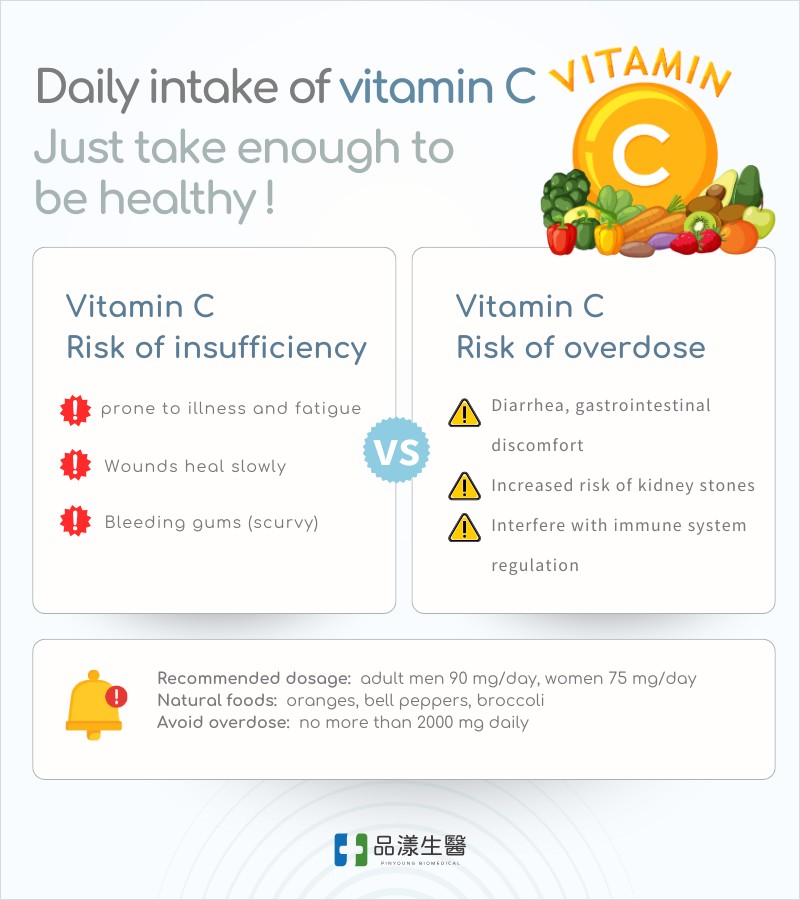Vitamin C is a powerful antioxidant that plays an important role in maintaining and enhancing the immune system. However, the body cannot synthesize vitamin C on its own, so it must be obtained through diet or supplements. So, how exactly does vitamin C promote immune health? How much do you need to take in every day to effectively support your health under different circumstances? This article will delve into these issues and provide daily intake recommendations.
The power of vitamin C: Why is it so important for the immune system?
- Improve white blood cell function
Vitamin C helps promote the production and function of white blood cells, making the immune system more effective in fighting germs and viruses. - Reduce inflammatory response
It can inhibit the excessive response of inflammatory factors and reduce tissue damage caused by infection or disease. - Promotes antioxidant protection
Vitamin C can scavenge free radicals, protect cells from oxidative stress, and reduce the risk of aging and disease. - Support skin health and form a protective barrier
Vitamin C can promote the synthesis of collagen, help the skin maintain its strength, and become the first line of defense against foreign germs.

How much vitamin C should you take every day?
Recommended daily intake varies based on age, gender and physical condition. The following is a detailed comparison table:
| age/status | Recommended daily amount (mg) | Maximum intake (mg) |
|---|---|---|
| 0-12 months | 40-50 | Unlimited data |
| 1-3 years old | 15-20 | 400 |
| 4-8 years old | 25 | 650 |
| 9-13 years old | 45 | 1200 |
| Male (14-18 years old) | 75 | 1800 |
| Female (14-18 years old) | 65 | 1800 |
| adult male | 90 | 2000 |
| adult women | 75 | 2000 |
| pregnant woman | 85 | 2000 |
| lactating women | 120 | 2000 |
Risks of under- or over-supplementation
- Effects of Vitamin C Lack
- prone to colds and illnesses
- Wound healing slows down
- In severe cases, it may cause scurvy (gum bleeding, fatigue)
- Side Effects of Too Much Vitamin C
- Diarrhea, abdominal pain
- Increased risk of kidney stones
- Long-term large-scale supplementation will reduce the regulatory ability of the immune system.
How to properly supplement vitamin C?
- Vitamin C in natural foods
- Citrus fruits: oranges, lemons
- Green vegetables: broccoli, bell peppers
- Strawberries, kiwis and other high-vitamin C fruits
- Choice of vitamin C supplements
- Choose products with no added sugar or artificial colors
- Supplement in appropriate amounts according to daily dietary conditions to avoid excessive intake
The importance of daily vitamin C supplementation
Vitamin C plays an important role in improving immunity, anti-oxidation, and promoting collagen production. However, taking too much may also cause side effects, so supplement appropriately according to individual needs. By combining a balanced diet with health supplements, you can truly achieve your immune health goals.



